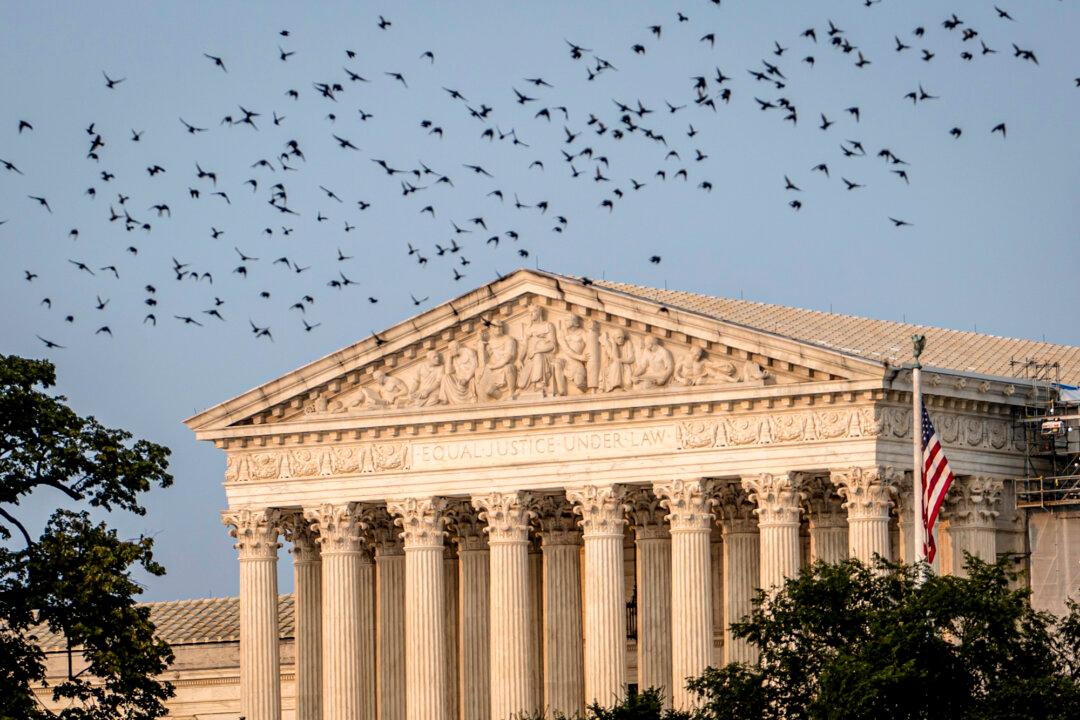The Supreme Court granted President Donald Trump’s request to halt a federal judge’s orders preventing his administration from using the Alien Enemies Act to deport suspected members of a Venezuelan gang but said detainees must be given an opportunity to challenge their removal.
“We grant the application and vacate the [temporary restraining orders],” the court said in a per curiam, or unsigned, opinion, on April 7. The decision applied to two original restraining orders and an extension issued last month by U.S. District Judge James Boasberg.





